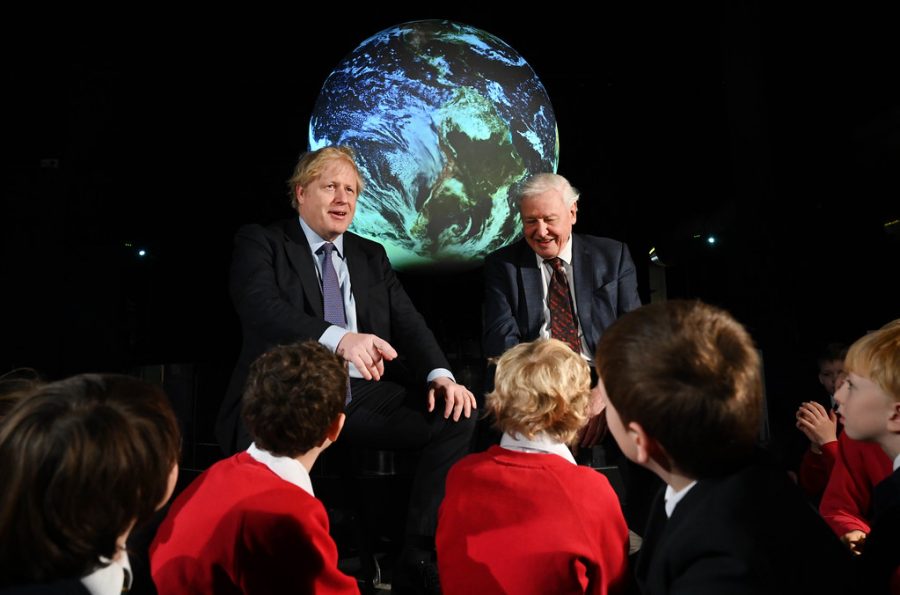2021 United Nations Climate Change Conference
Boris Johnson and Sir David Attenborough talk to school children at the Science Museum for Launch about the UK hosting of the 26th UN Climate Change Conference.
November 12, 2021
Some exciting news for climate enthusiasts: the negotiations of a two week long event of the 2021 United Nations Climate Change Conference, also known as COP26. As one can assume from the name alone, it is a summit meeting of representatives from all around the world to discuss carbon emissions, and what can be done about them.
However, this gathering is nothing new. In fact, it is the 26th United Nations Climate Change Conference, which dates all the way back to around 1995. “COP” stands for “Conference of the Parties”, while “26” refers to the session number. The very first meeting took place in Berlin Germany. Since then, it has been held every year at differing locations, with 2020 being the exception due to the outbreak of the COVID-19 pandemic.
This year, it was held at the SEC Centre in Glasgow, Scotland, United Kingdom, between 31 October and 12 November 2021, under the presidency of Alok Sharma. Twenty thousand diplomats, business executives, and activists met in Glasgow. Dozens of world leaders attended, including U.S. President Joe Biden.
It was also the first COP since the United States reentered the Paris Agreement this year, an agreement that requires all countries to set emissions-reduction pledges. The United States, the world’s second-largest emitter, was the only country to withdraw from the accord, a move by former President Donald Trump that took effect in November 2020. President Joe Biden reentered the United States into the agreement during his first months in office.
However, the administration has struggled to pass the climate bill in Congress. There are serious concerns that any passable climate legislation would not go far enough, which could damage U.S. credibility on the international stage. “The question that is on everyone’s minds is: Can the United States fulfill its commitments under the Paris accord?” says Robert N. Stavins, an environmental economist at Harvard University.
A topic currently out on the table is climate finance. Developing countries, which have contributed the least to emissions levels, are demanding that developed countries follow through on a pledge to deploy $100 billion per year to help them reduce emissions and adapt to the worsening effects of climate change. This raises the question of how to assist nations already experiencing loss and damage due to climate change.
Transparency in the building industry has also been stressed during COP26, to improve accurate carbon measurements from material manufacturers. Due to several issues not having been resolved during COP25, rules must also be finalized, such as how carbon markets will work. The Paris Agreement works by establishing a continuous improvement cycle through which countries plan and communicate their NDCs (nationally determined contributions), then implement their plans, and finally, review individual and collective progress to inform future planning and their next NDCs. This why it is important that this year’s COP26 negotiations come up with ambitious goals.
British Prime Minister Boris Johnson, who is hosting COP26, has called on developed countries to stop using coal—a major source of emissions—by 2030 and for other countries to phase it out by 2040. However, discussions on coal have already been contentious. China and India, which in recent weeks have suffered energy crises partly due to coal shortages, have also resisted committing to eliminating coal. Methane emissions are another cause of climate change, and thus, are being heavily negotiated on.
The end of COP26 will set the stage for negotiations that will continue both within the COP process and outside of it. Climate change will likely be a central topic at future summits. A successful COP would be one that instills “a sense that we’re still in it together as a world,” says Maarten van Aalst, director of the Red Cross Red Crescent Climate Center, “and a sense of a commonly owned agenda where we will continue to raise ambition over the coming years.”


